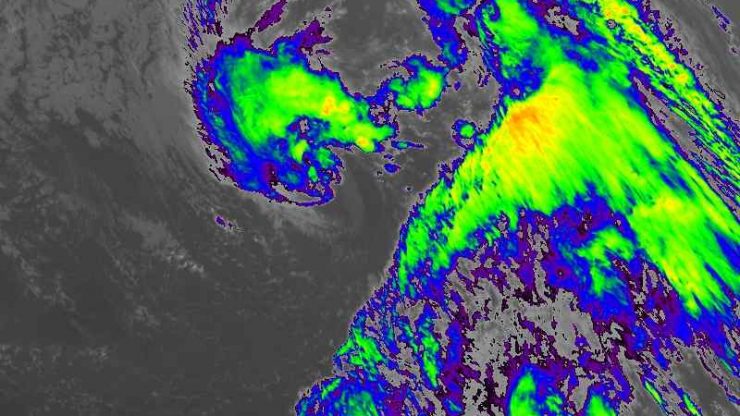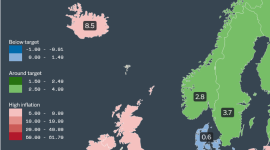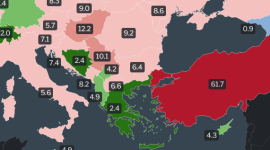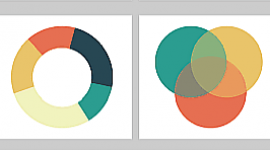This is also a record because the number of 28 named storms was broken for the first time. It was set in the infamous and sad 2005 Atlantic hurricane season when hurricanes Katrina, Rita, and Wilma, and many others, claimed nearly 4,000 lives and caused over $ 170 billion (2005) in damage.
NOAA forecasted an active 2020 Atlantic hurricane season
This year’s hurricane season in the Atlantic is extremely active, which aligns with the NOAA forecasts. NOOA forecasted, back in August, that we may see 25 named storms. Earlier in May, the NOOA predicted we would have 19 named storms. The Atlantic seems to have decided to break all records this year.
Theta shatters the record from 2005
The subtropical storm Theta was located about 1,400km southwest of the Azores, and wind speeds were approaching those of a Category 1 hurricane. Theta is expected to move eastward towards Portugal and Spain; however, it is not likely to have devastating consequences and will disintegrate long before coming over the soil – either African or European.
Although we live in a time of increasing concern and sensitivity about the impact of people on climate change and the effect of change itself, scientists point out that the mere increase in the number of named storms is not a result or indicator of climate change. However, what climate change is affecting is an increase in the destructive power and strength of hurricanes. Add rising sea levels to that, and floods caused by hurricanes are becoming even more dangerous and with more severe consequences.
Scientists attribute the increased activity to the warmer ocean surface, the pronounced monsoon season in Africa, and weakened wind shear in this particular hurricane season. Weak wind shear means that the atmosphere is less volatile at different altitudes, so there are no huge disturbances in forming storms and hurricanes.
Even though it broke records in the number of hurricanes, this year’s hurricane season is behind the 2005 Atlantic hurricane season’s intensity and damage. Then, we had as many as 8 Category 3 hurricanes, and 3 of them reached Category 5.
Louisiana hit over and over again
Unfortunately, this year also brought 5 named storms that hit Louisiana. Hurricane Laura was one of the strongest hurricanes ever to hit this state. Only six weeks later, Hurricane Delta (a Category 2 hurricane) hit almost the same places as Laura did.
ABOUT THE AUTHOR
 Storm Theta at 18:30, 10.11.2020. as seen by the GOES-East satellite, the wavelength is 10.35 µm, channel 13, and the spatial pixel resolution is 2km. Courtesy of NASA / NOOA.
Storm Theta at 18:30, 10.11.2020. as seen by the GOES-East satellite, the wavelength is 10.35 µm, channel 13, and the spatial pixel resolution is 2km. Courtesy of NASA / NOOA.











